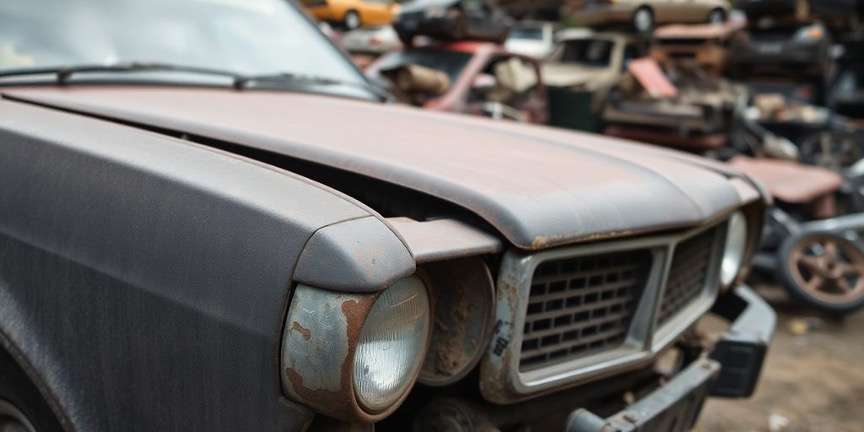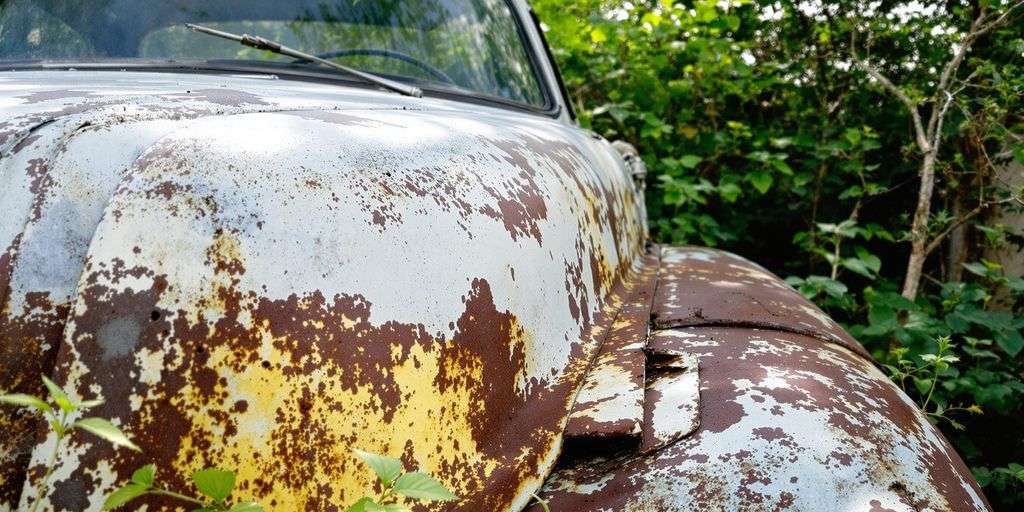Key Takeaways
- Check your car's VIN on the NHTSA website for any open recalls.
- Contact the car manufacturer for recall information specific to your vehicle.
- Services like Carfax can provide recall information on used cars.
- Legally, you might need to disclose open recalls to potential buyers.
- Fixing recalls can sometimes increase your car's resale value.
Understanding Car Recalls

What Is a Car Recall?
A car recall happens when a manufacturer or the National Highway Traffic Safety Administration (NHTSA) finds a defect in a vehicle that could affect safety. It's not just about the car not running right; it's about a potential risk that could lead to accidents or injuries. Recalls cover a range of issues from faulty brakes to software glitches. When a recall is issued, the manufacturer is legally required to fix the problem, usually at no cost to the owner. This ensures that all vehicles on the road are as safe as possible.
Why Do Recalls Happen?
Recalls occur for several reasons. Sometimes it's due to a design flaw that wasn't caught during initial testing. Other times, it's because a part fails prematurely or doesn't meet safety standards. Manufacturers must issue recall notices upon discovering safety defects, even if no immediate fix is available. This is not just about keeping you safe; it's also about maintaining trust in the brand. Nobody wants to drive a car that might suddenly stop working or worse, cause an accident.
Types of Recalls
Recalls generally fall into two categories: safety-related and non-safety-related. Safety-related recalls involve issues that pose a risk to the driver or passengers, like faulty airbags or steering problems. Non-safety recalls might cover things like minor software bugs or cosmetic issues. Here's a quick look:
- Safety-Related: These are critical and need immediate attention. Examples include brake failures, airbag defects, and fuel system issues.
- Non-Safety-Related: These might not need urgent action. They could involve things like paint defects or minor software updates.
Recalls are a big deal because they directly impact your safety on the road. Always take them seriously and act promptly to get any issues resolved.
Checking for Recalls on Your Junk Car
Using the NHTSA Website
First things first, the National Highway Traffic Safety Administration (NHTSA) is your go-to for checking recalls. They have a nifty tool on their website where you can plug in your car's VIN (Vehicle Identification Number). This number is like your car's fingerprint—unique to each vehicle. You'll find it on the lower left of your windshield or your car registration card. Using this tool is a smart way to see if there are any open recalls on your car. It's straightforward and gives you detailed info about any recalls, investigations, or complaints associated with your car.
Checking with Your Car Manufacturer
Another solid option is to reach out directly to the car manufacturer. Most manufacturers have dedicated sections on their websites where you can check for recalls. Some even offer apps that send notifications if your car is affected. If you're unsure where to start, consider calling their customer service line. They can provide details about any recalls and guide you on what steps to take next.
Utilizing Carfax and Other Services
Services like Carfax can also be really helpful. They offer a vehicle history report that includes recall info. This is especially useful if you're buying a used car and want to make sure there are no hidden issues. Some services even notify you if a recall pops up after you've checked. It's a good idea to use these services alongside the NHTSA and manufacturer checks to cover all bases.
Staying on top of recalls is crucial for safety, not just for you but for anyone who might end up buying your car. Make sure you address any recalls before selling your vehicle to avoid potential liabilities.
Steps to Take If Your Car Has a Recall
Contacting the Manufacturer
If you find out your car has a recall, the first thing to do is get in touch with the manufacturer. They usually send out notifications, but if you haven't received one, don't worry. You can contact them directly or visit their website to confirm the recall details. They'll provide you with the next steps, which usually involve heading to a local dealership.
Scheduling a Repair
Once you've got the recall information, it's time to schedule a repair. Call your local dealership to set up an appointment. Most repairs are straightforward and won't take long, but it's a good idea to ask about the expected time frame when you book. If the repair might take a while, the dealership might offer a rental car to keep you moving.
Understanding Repair Costs
The good news is, you generally won't have to pay for recall repairs. Manufacturers are required by law to fix these issues at no cost to you. However, if someone tries to charge you, make sure to report it to the manufacturer or the NHTSA. There's an exception for tire recalls, though—those need to be fixed within five years of the notice to be free.
Legal Considerations Before Selling a Recalled Car
Federal and State Laws
Selling a car with an open recall can be a tricky business. While there isn't a federal law outright banning the sale of used cars with open recalls, it's important to know that some states have their own regulations. These laws can vary, so it's crucial to check local requirements before proceeding with a sale. Understanding these laws can help you avoid legal trouble down the road.
Disclosure Obligations
When selling a car, honesty is indeed the best policy. You need to let potential buyers know about any open recalls. This isn't just about being a good person; it's about protecting yourself legally. If you fail to disclose this information, you might find yourself in a legal bind later. Make sure to provide all the necessary details about the recall status to any prospective buyer.
Potential Liabilities
Ignoring recall issues when selling your car can lead to serious consequences. If a buyer experiences a problem related to an undisclosed recall, you could be held liable. This could mean facing lawsuits or financial penalties. To avoid these headaches, address any recalls before selling or ensure you're transparent about them with buyers. Taking these steps not only helps you avoid legal issues but also builds trust with potential buyers.
Selling a car with a recall isn't just about getting rid of it; it's about doing so responsibly. Make sure you're aware of the legal landscape to protect yourself and ensure a smooth transaction.
Staying Informed About Future Recalls
Signing Up for Alerts
Keeping up with recalls is crucial if you want to ensure your car stays safe. One straightforward way to stay updated is by signing up for email alerts from the National Highway Traffic Safety Administration (NHTSA). These alerts can notify you about recalls specific to your car's make and model. It's like having a personal watchdog for your vehicle's safety. Besides that, some car manufacturers offer their own notification services, so it's worth checking their websites for any such options.
Using Mobile Apps
In this digital age, there's an app for everything, and car recalls are no exception. Safercar is a handy app available for both iPhones and Android devices. This app sends recall alerts directly to your phone, ensuring you're in the loop even on the go. Some automakers, like Ford, have their own apps such as FordPass, which include features for recall notifications. So, if you're tech-savvy, downloading a few apps could be a smart move.
Following News Updates
Don't underestimate the power of good old news updates. Many news outlets report on significant recalls, especially if they affect a large number of vehicles. Subscribing to automotive news sections or setting up Google Alerts for recalls can keep you informed. It's a simple way to catch any major recall announcements that might slip through other channels.
Staying informed about recalls isn't just about keeping your vehicle in top shape; it's about ensuring your safety and the safety of others on the road. With the right tools and a bit of attention, you can easily stay ahead of any potential hazards.
Impact of Recalls on Car Value
How Recalls Affect Resale Value
Car recalls can really shake up the market value of your vehicle. Buyers often hesitate when they hear about a car with a recall, even if it's already been fixed. This hesitation can lead to a drop in the car's resale value. However, once the recall repair is completed, the car's value might stabilize, but it often doesn't fully rebound to its pre-recall level.
Negotiating with Buyers
When you're selling a car that's been recalled, expect some tough negotiations. Buyers might use the recall as a bargaining chip to lower the price, even if the issue has been resolved. Here are a few tips to handle this:
- Be transparent about the recall and its resolution.
- Provide documentation of the repair.
- Highlight any benefits or upgrades that came with the recall fix.
Repairing Before Selling
It's usually smart to get any recall-related repairs done before putting your car on the market. Not only does this give you peace of mind, but it also reassures potential buyers. Plus, manufacturers typically cover the costs of these repairs, so you won't be out of pocket. If you skip the repairs, you might have to sell the car “as-is,” which can significantly lower your asking price.
Selling a car with an unresolved recall can be tricky, but with the right approach, you can still get a fair deal. Just remember, honesty is key, and having all your paperwork in order can make the process smoother.
Resources for Car Owners

Government Websites
When you're trying to figure out if your car has any recalls, start with government resources. The National Highway Traffic Safety Administration (NHTSA) is a great place to begin. They have a tool where you can enter your Vehicle Identification Number (VIN) to see if there are any open recalls on your car. It's pretty straightforward and free to use—definitely worth checking out.
Automaker Resources
Most automakers have their own websites with recall information. They often provide details on specific models and the nature of the recalls. Some companies even have mobile apps that can send you notifications if your vehicle is affected. It's a good idea to register your vehicle with the manufacturer to get these updates.
Consumer Advocacy Groups
Consumer advocacy groups can also be a helpful resource. Organizations like the Center for Auto Safety offer tools to check for recalls. They often provide additional insights or advice on what steps to take if your car is affected. It's worth exploring these resources to stay informed.
Staying informed about recalls not only helps ensure your safety but can also impact the resale value of your car. Always keep an eye out for new information and updates.
Wrapping It Up
So, there you have it. Checking for recalls on your junk car before selling it isn't as daunting as it seems. Just a few clicks online or a call to the manufacturer, and you're good to go. It's worth the effort to ensure everything's in order, not just for peace of mind but also to keep future buyers safe. Plus, it might even bump up your car's value a bit. So, take a little time to check things out—it's a small step that can make a big difference.
Frequently Asked Questions
What exactly is a car recall?
A car recall happens when a car maker or the NHTSA finds out that a part of the car might not be safe or doesn't meet safety rules. They ask owners to bring the car in for a fix.
How can I find out if my car has a recall?
You can check for recalls by visiting the NHTSA website and entering your car's VIN. You might also get a letter from the car maker if there's a recall.
What should I do if my car has a recall?
If your car has a recall, contact the car maker or a local dealership to find out how to get it fixed. The repairs are usually free.
Will fixing a recall cost me anything?
No, fixing a recall usually doesn’t cost you anything. The car maker is responsible for covering the repair costs.
How long does it take to fix a recall?
The time it takes can vary. Some fixes are quick, while others might take longer if parts are needed. It's best to ask the dealership for an estimate.
Can I sell my car if it has a recall?
Yes, you can sell your car even if it has a recall, but you should tell the buyer about it. Some states have rules about this, so check your local laws.



